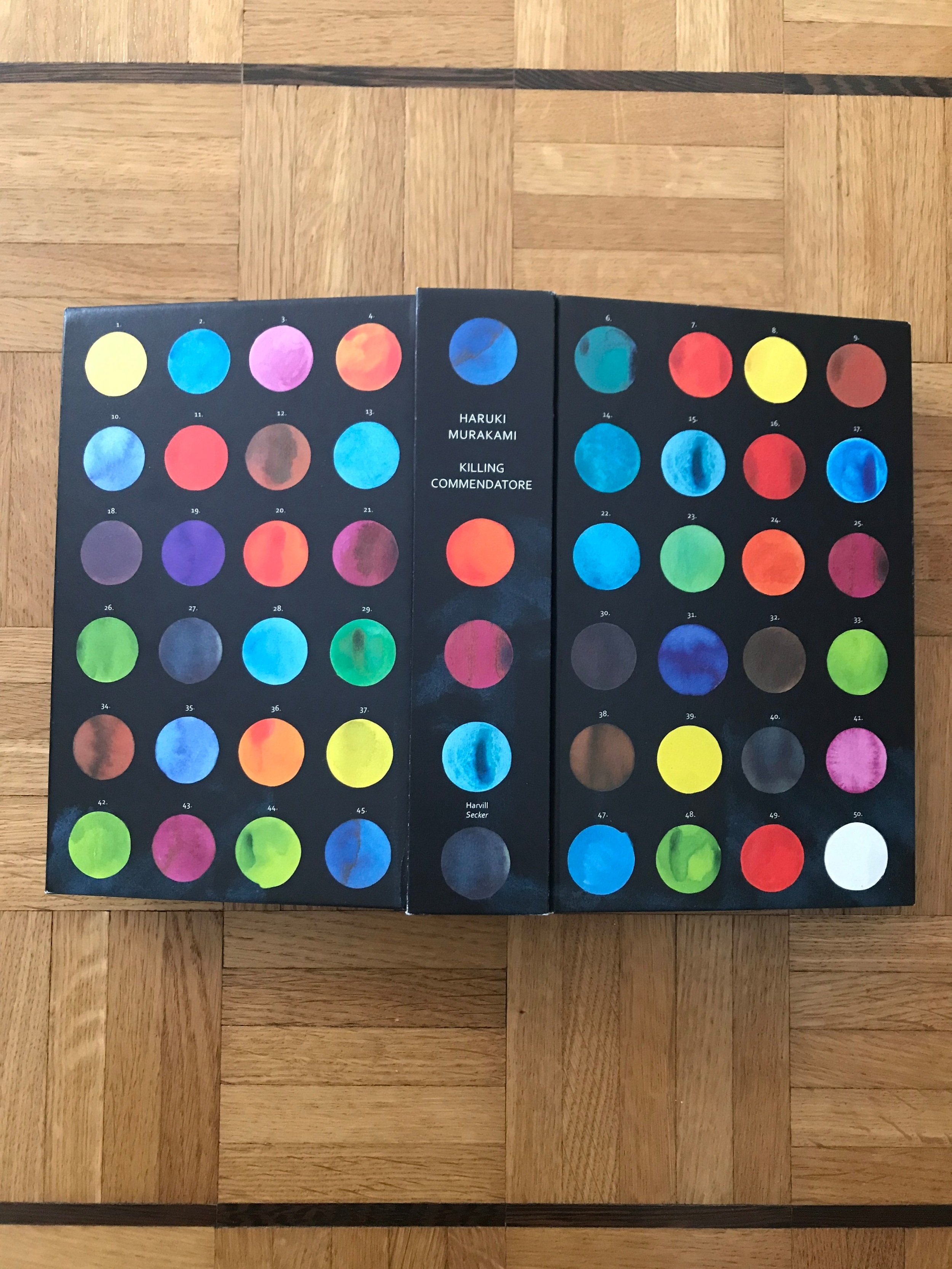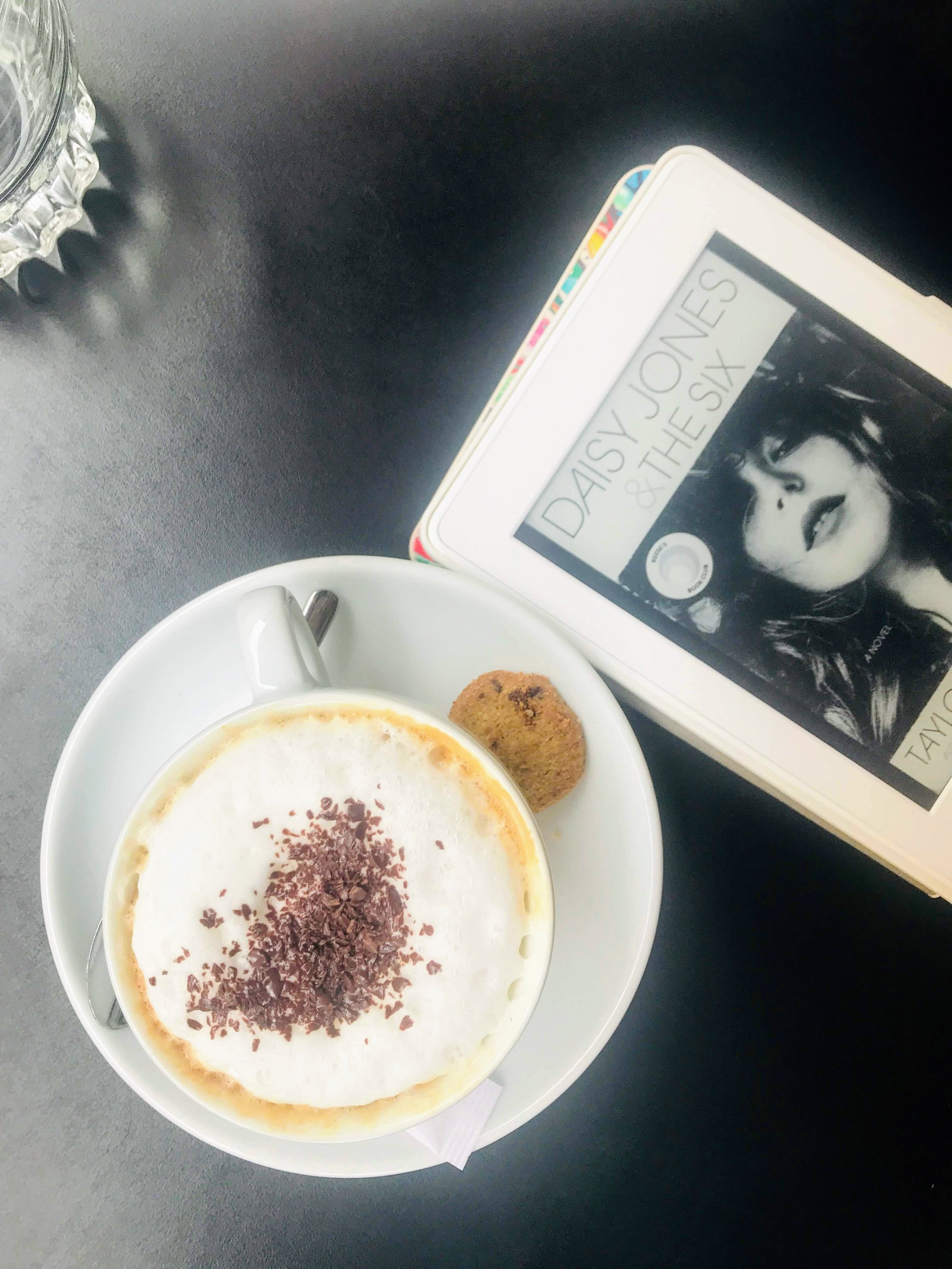What I've Read: Spring 2019
Out of all my book review lists thus far, this recent crop feels the most outside my norm. I generally gravitate toward “heavy” fiction books. Books that challenge and change the reader. Books that tend to emotionally devastate me, or make me think deeply about how the world works. For the most part, I prefer strong character development to page-turning drama and plot twists.
But, this season I mixed things up a little bit: There was a compelling nonfiction, a memoir of personal challenge and triumph, a fiction book written like a documentary, a break-your-heart-wide-open book (there needed to be at least one), a though-provoking slow burn novel, a book from an old favorite author, and a book from a new favorite author. They weren’t all favorites, but this list is certainly the most varied. A book here for everyone!
That said - have you heard of the Bechdel test? It’s something that has been on my mind lately. I just recently learned about it, thanks to an episode of Jane the Virgin (hands down one of the best TV discoveries I’ve made in the last few years. Are you watching? You should watch). I started thinking about it while reading Murakami’s book, and it got me so frustrated I had a hard time enjoying the last ⅓ of Killing Commendatore (which did not pass the test, by the way).
Ok, so the Bechdel test. It’s a test on the representation of women in fiction - and it uses a single question: Are there two female characters (with names) who have a conversation about something other than a man? That’s it. That is literally the only requirement. And once I starting realizing how many works of fiction did not pass this simple, simple, simple test - well, it was hard to focus on anything else. It’s not necessarily about how women themselves are represented in the piece of work, but rather, to highlight gender inequality in fiction. It probably goes without saying that there doesn’t need to be a similar test for male characters.
If a book doesn’t pass the test, it doesn’t mean it is a bad book. In fact, a work may pass the test and still contain sexist content, and a work with prominent female characters may also fail the test. It’s not the be-all, end-all, yardstick to gauge gender bias or representation. It doesn’t take into account racial diversity or non-binary genders. But it’s interesting, and makes you think, and sparks discussion. Something to chew on.
Books read:
Bad Blood: Secrets and Lies in a Silicon Valley Startup
Tin Man
Educated
The Painter
Daisy Jones and the Six
An American Marriage
Killing Commendatore
Bad Blood: Secrets and Lies in a Silicon Valley Startup by John Carreyrou
Bad Blood tells the true story of the rise and fall of Theranos, a Silicon Valley unicorn start-up that was founded by Stanford dropout Elizabeth Holmes when she was just 19. Theranos, promising to revolutionize health care with machines that only needed a single drop of blood, was valued at $10 billion. Holmes herself reached celebrity status as the young female CEO that everybody wanted to see. The Theranos machines were in hundreds of Walgreen pharmacies, with patients using their blood results to make healthcare decisions. Except the technology didn’t work. At all.
There are so many incredible WTF moments in this book. There’s just no other way to say it. Exhaustively reported. Well-written. Reads like a thriller, with the many webs of deceit and duplicity. John Carreyrou is masterful at investigative journalism, and he and the whistleblower employees at Theranos deserve accolades for their courage to speak the truth against this behemoth of a scam. It’s not only an unbelievable story and cautionary tale, it offers insights and asks questions about Silicon Valley culture: faking it until you make it, unwillingness to compromise on vision, the fear of missing out on the next “big thing,” and the ethics that get trampled on the path to fame and legacy. Read it before all the TV shows and movies come out about this insane true story.
Tin Man by Sarah Winman
Oh, this little book. You know I couldn’t make a book list without at least one novel that moved me to tears. I was in tears through most of these two hundred pages. Sometimes because the writing was so simple yet so beautiful, sometimes because there was so much hope and happiness, and sometimes because of the sadness and loss and loneliness. Sarah Winman’s writing is emotionally powerful, and she crafted these incredibly human characters I can’t stop thinking about.
Michael and Ellis meet when they are 12, become best friends, and could be something more. Then Ellis meets and marries Annie, and the three of them form this beautiful trio of friendship and understanding and love. You know from the first few pages that tragedy strikes, but there isn’t a heavy cloud of gloom hanging over the story. It’s more melancholic. The first part of the book is told from Ellis’s perspective and the second half from Michael’s. There is a beautiful section of the story that takes place in seaside France, and it’s the most heart-breaking snapshot of “what could have been” that I’ve ever read. Winman’s writing manages to capture so much complexity and emotion, heart and depth, tenderness and grief, without being overly wordy or descriptive. It’s perfect.
“We shared a cigarette, and in between us was a parched landscape strewn with the bones of abandoned plans only we once knew about.”
Educated by Tara Westover
Tara is raised by her survivalist Mormon parents in the mountains of Idaho and didn’t set foot in a classroom until she was 17. She doesn’t have a birth certificate, her parents don’t believe in modern medicine (even after near-fatal accidents, resulting in entire bodies caught on fire and traumatic brain injuries), and they are consistently stockpiling supplies for the end times.
I was first interested in this book because I thought the theme would be the importance of educating yourself at all costs. But there is a lot more to unpack from Tara’s experience. The physical and emotional abuse, the gaslighting, the resolve to educate herself, the great writing that made you feel like you were right there with her on the mountain - what a story. Tara sucks you into her world. Many times I had to remind myself that this wasn’t fiction, but someone’s true experience. I was particularly struck by her ability to not only overcome her physical circumstances, but from her mental self-coercions as well.
The Painter by Peter Heller
Raunaq told me about this book about 5 years ago when we were on vacation in Sri Lanka, and I can’t believe it took me that long to finally pick it up. It’s a book of contrast, from the characters, to the plot, to the scenery itself. Amazing, amazing writing.
The main character, Jim Stegner, is a tough “mans” man, an avid fisherman and outdoorsman, and a fighter prone to anger and violence. He says himself he has murder in his heart. But, he’s also a gifted expressionist painter who is dealing with the loss of his teenage daughter from a drug deal gone bad, trying hard not to relapse into self-destruction, and is using art to make sense of his emotions.
The Painter is also a thriller. After a violent event, Jim finds himself the target by a clan of hostile hunters. Most of the story is dark and introspective, but Peter Heller manages to write just as poetically about the rivers and red vistas of New Mexico as he does about hunting humans down for murder. Western vigilantism, but with an artistic flair. A meditation on art and nature, both human and environmental. It’s a story about finding grace and redemption in a cruel and beautiful world. Hard to explain, but I really enjoyed it, and can’t wait to read his next book.
“I never thought I would be a painter. That I might make a world and walk into it and forget myself. That art would be something I would not have any way of not doing.”
Daisy Jones and the Six by Taylor Jenkins Reid
I had been hearing so much buzz about this book. So when it came to choose a new title for our book club, I really pushed hard for Daisy Jones and the Six, the story of the rise and fall of a fictional band in the early 70s. I didn’t really know much about the story, except that it was all sex drugs and rock and roll, so thought it would be a fun read. And it was! But it was also a lot more. I was surprised about how much I tore through the story, and LOVED every bit of it.
First thing: I thought the choice of narration was a master stroke. It’s written as a transcript of interviews, so the whole novel reads like a documentary. It takes a little bit to get used to, but the oral history format is what made this book so unique. You are able to get all the perspectives and reactions for a certain event from different narrators, and this style gave each character deep and layered personalities. Honestly, every person felt real. About halfway through, I had to Google “Daisy Jones” just to assure myself they weren’t a real band.
The book’s timeline covers the band’s rise to rock stars, but also explores addiction, the frenzy of the creative process, music, relationships, parenthood, and yeah - a lot of sex, drugs and rock and roll. I particularly loved the female characters, who each in their own way fought to get out of the box the world wanted to put them in. It also gave me all the Almost Famous vibes, and if that doesn’t sell you, I don’t know what will. It’s all happening.
An American Marriage by Tayari Jones
This is the story of a young African-American couple, Celestial and Roy. Their marriage is just beginning, when Roy is sentenced to twelve years in prison for a crime he didn’t commit. Eventually, his wrongful conviction is overturned and he can come home, but by then his life and the lives around him have been turned upside-down. The book is a slow burn, dictated by the complex characters and how they react to the circumstances rather than dramatic plot lines.
While this book took a hard look at the broken and racist criminal justice system in the United States, I liked how instead of focusing on the system itself, it focused on the far-reaching human consequences of its injustices. Relationships fall apart, people break, marriages splinter, and the life you sweat blood to create can disappear in an instant while the world keeps spinning. One of my favorite sections of the book was the series of letters Celeste and Roy exchanged during his prison sentence. Maybe I just have a soft-spot for the lost art of letter writing, but it was a soul-wrenching way to watch the emotional cracks deepen with the passage of time. It’s a book to make you think: What does it mean to be married? At what point can loyalty no longer be expected? What happens when you are unfairly robbed of your life? Who’s needs do you serve first?
“There should be a word for this, the way it feels to steal something that’s already yours.”
Killing Commendatore by Haruki Murakami
Murakami’s mind is incredible. He is an author that is always going to weave a fantastical tale. Murakami has a marked talent of taking average characters and putting them in extraordinary situations, creating worlds that look like our world but are not our world. It’s true that lots of his books contain similar patterns: cats, jazz, a single unnamed male protagonist that has been left by a woman, a portal that opens to another world. In Killing Commendatore, however, there are no cats and no jazz, but instead, a botched Nazi assassination in Vienna, Ideas and Metaphors that take a tangible form, lots of opera, and an underdeveloped homage to the Great Gatsby. Oh, and yes, there is a portal to another world.
Maybe because Murakami strayed off his usual formula is why I didn’t enjoy this book as much as his others. Something about the way he wrote seemed so repetitive. He kept recalling events that had already happened, as if he needed to remind the reader over and over. I’m not sure if this was intentional, or perhaps a result of the translation from Japanese to English. And his portrayal of women really started to bug me midway through the story. It’s a monster of a book, over 600 pages, and I did read the whole thing because I had to know how it all ended. But if you want to read a great book by Murakami, I’d suggest instead Kafka on the Shore, The Wind-Up Bird Chronicles, or 1Q84.









